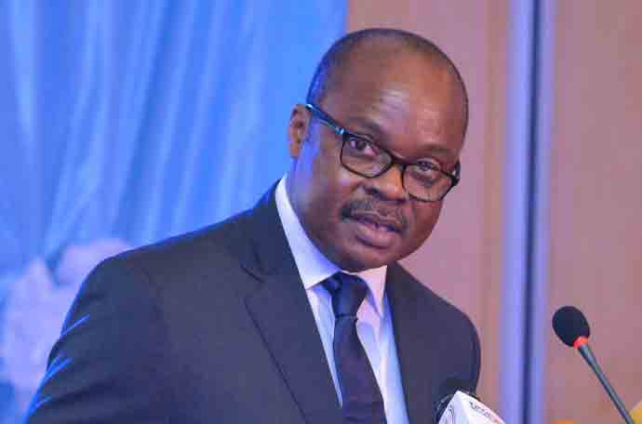The Monetary Policy Committee (MPC) of the Bank of Ghana has kept its policy rate unchanged at 29.5%.
It cited a slowdown in inflation as the main reason to the unchanged rate, which is the rate at which it lends to commercial banks.
"The Committee noted the significant decline in headline inflation from the beginning of the year of more than 12.0%. The percentage of items in the CPI basket with inflation of more than 50% and above is receding, an indication of a strong return to the disinflation path", Governor of the Bank of Ghana, Dr. Ernest Addison said at a press briefing.
He explained that the tight monetary policy through additional liquidity management operations to address excess liquidity conditions in the market, relative stability in the local currency, and easing of ex-pump petroleum prices have supported the disinflation process.
He added that the Bank of Ghana has signed the Memorandum of Understanding on zero financing to the budget to eliminate fiscal dominance and allow for a faster ease in inflation towards the target band.
"These policies should provide the much-needed anchor to reinforce the disinflation process and reset the economy on the path of recovery," he expressed optimism.
Implications of unchanged rate
By this, the cost of credit is expected to remain high with the average lending rate going for about 31.5%.
The International Monetary Fund (IMF) had revealed last week that the Bank of Ghana will continue tightening monetary policy until inflation is on a firmly declining path.
According to the Fund, monetary and exchange rate policies under the programme will focus on reining in inflation and rebuilding foreign reserve buffers.
Since July 2022, the policy rate has gone up by 10.5%.
Banking sector performance
Dr. Addison announced that the performance of the banking sector broadly reflected the general macroeconomic operating environment as well as the impact of the Domestic Debt Exchange Programme as indicated in the 2022 audited financial statements.
He, however, stated that the prudential returns for the first four months of 2023 have shown signs of recovery in the profitability of banks and a gradual improvement in the solvency positions.
This, he said is supported by the regulatory reliefs issued to safeguard stability of the financial sector
Interest rates trended upward
On the money market, interest rates broadly trended upward in April 2023 at the short end of the yield curve, consistent with the tightening policy stance.
The 91-day and 182-day Treasury bill rates increased to 19.67% and 22.29% respectively, in April 2023, from 16.22% and 16.72% respectively, in April 2022.
Similarly, the rate on the 364-day instrument increased to 27.04% in April 2023, from 18.93% in April 2022.
Latest Stories
-
DigiVibe targets gender-inclusive economic development and digital transformation in Ghana
2 minutes -
BoG targets loan defaulters in new regulatory measures
4 minutes -
Ghana’s 5G rollout is unlocking a new digital era with safe, shared infrastructure
4 minutes -
Goldbod rakes in $1.17bn after first full month – Finance Minister
13 minutes -
Walewale MP to establish state-of-the-art recording studio to boost creative art and fight drug abuse menace
18 minutes -
Ato Forson signs ¥402m grant agreement with Japan to boost human capital development
21 minutes -
Bunkprugu Paramount Chief officially gazetted after 18-year legal battle
26 minutes -
Establish centralise digital platform for taxpayers to file annual financial statements – Deloitte Associate Director to government
27 minutes -
Ongoing drainage projects must be backed by attitudinal changes towards waste – Adjei-Mensah Korsah
33 minutes -
Mpox outbreak: 26 new cases confirmed, total cases now 45
41 minutes -
OSP is a waste of public funds – Kwabena Agyepong slams handling of Ofori-Atta
46 minutes -
Music producer Joseph Appiah to present constitution audio book to Mahama
54 minutes -
OSP dismisses purported medical report on Ken Ofori-Atta, denies receiving any official document
1 hour -
Kwabena Agyapong challenges OSP’s authority to declare suspects wanted
2 hours -
10-years after June 3 Disaster: Nii Ashitei Ashietey calls for bold action to end perennial flooding
2 hours

